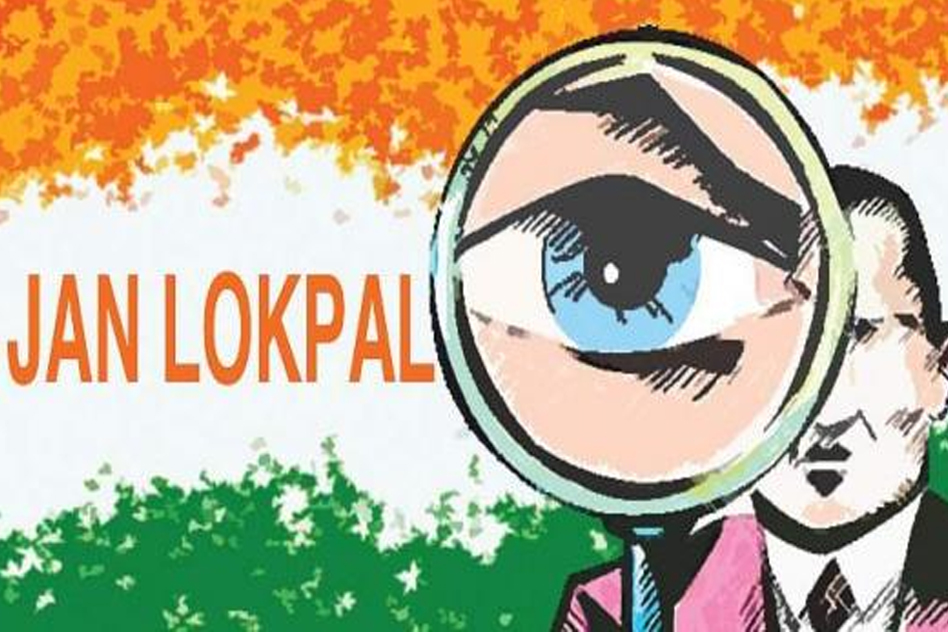
TLI Explains: 7 Years On, The Lokpal And Its Appointment
3 Aug 2018 7:41 AM GMT
The Lokpal is a neutral investigative authority or ombudsman, a Swedish concept that was brought to India to fight corruption at the national level- which includes jurisdiction over MPs and the entire Central government of India. The Lokayukta is the same independent body, at the state level.
The Lokpal Bill was first introduced by Advocate Shanti Bhushan, father of lawyer and prominent member of the IAC movement, Prashant Bhushan, in 1968. Since then, nine revised versions have been reintroduced throughout the years without a single version being passed in the Lok Sabha, until 2013.
The movement for the Jan Lokpal took place in 2011 under the leadership of Anna Hazare along with other notable figures under the name India Against Corruption. Major public protest from various sects of people all over India culminated in the passing of the Lokpal and Lokayukta Bill 2011 by the Lok Sabha on December 18, 2013.
Is The Lokpal Necessary?
The Lokpal is an anti-corruption body, comprising of maximum eight members and a chairperson, that can follow up on complaints of corruption on any level of public servant, except for officers of the armed forces, but it must be noted that it only has investigative authority- only the courts can lead the trials and prosecution.
However, the Lokpal does have the power to confiscate property acquired through corrupt methods. It can direct any investigative agency, including the CBI, on the cases they’ve been assigned by the ombudsman. Furthermore, no officer of the CBI investigating a case referred to them by it can be transferred without the approval of the Lokpal.
According to The Hindu, the ombudsman can summon or question a public servant on the basis of a prima facie against the person, even before a CBI enquiry into the matter actually started. However, the Lokpal can charge “false, frivolous or vexatious complaints” with a fine up to Rs 2 lakh and imprisonment of 2-5 years.
Why the delay, then?
When the Government introduced its version of the Lokpal Bill in the Lok Sabha, the ombudsman was provisioned to be appointed by a five-member panel comprising of the Prime Minister, the Lok Sabha Speaker, the Leader of the Opposition, the Chief Justice of India and an eminent jurist nominated by the President.
On May 15, 2018, Mukul Rohtagi, the former Attorney General of India was appointed by the President as the eminent jurist in the Lokpal. However, the Lokpal is still not appointed because the panel that appoints the Lokpal is yet to be completed- the current Lok Sabha does not have a Leader of the Opposition since no single opposition party was able to gain 10% of the total seats in the House in the 2014 General Elections.
Since the passing of the Bill in 2013, not a single Lokpal member has been appointed.
What does the Supreme Court say?
On July 2, the Supreme Court had asked the government to file an affidavit with details regarding the steps they were going to take for appointing the Lokpal, including a date for the same. However, the government, represented by Attorney General K. K. Venugopal, failed to do so, citing the appointment of the ombudsman to be a long and “complicated” process.
According to NDTV, the Court was hearing a contempt petition filed by the NGO Common Cause, represented by Activist lawyer Prashant Bhushan, regarding the issue of non-appointment of the Lokpal despite the Court’s verdict of April 27, 2017, which explicitly stated that there was no justification to suspending the enforcement of the Lokpal Act even without a Leader of the Opposition.
The Centre has said that a search panel is scheduled to be set up by the Lokpal appointing panel headed by the Prime Minister. The search panel is to lay down its procedures regarding recommendation of a list of names for the ombudsman and its members, following which the appointing committee will fix a time frame for the recommendations by the search panel.
The NGO in its affidavit claimed the government to be “dragging its feet” in regards to the appointment of the ombudsman. Mr Prashant Bhushan had asked for contempt action against the government for failing to appoint the Lokpal despite a delay of almost five years. He also urged the court to step in and appoint the Lokpal itself. A bench led by Justice Ranjan Gogoi decided to not exercise its extraordinary powers. Expressing its dissatisfaction over Centre’s response on the whole issue, the apex court has sought a new affidavit in four weeks with all the necessary details.
Conclusion
A democracy is a government of the people, for the people, by the people. It is up to us, the common citizens, to take an active interest in the working of our government. To be vigilant of misuse of power, and to be cooperative towards efforts made to unravel corruption, Lokpal can prove to be a powerful check against corrupt politicians and bureaucrats, provided the people are made aware of the loopholes used to deceive us.
 All section
All section













